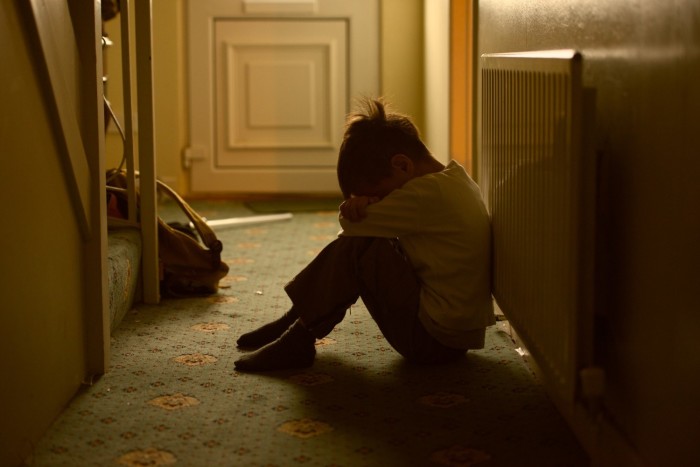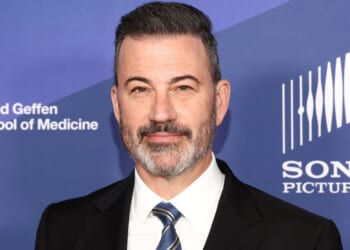
Child maltreatment in the United States kills more than 2,000 children each year — most of them under the age of 3 — yet the problem receives far less public attention than pediatric cancer or school shootings, according to child welfare expert and author Naomi Schaefer Riley.
“It’s a problem,” Riley told host Abby Johnson on her “Politely Rude” podcast. “Child abuse and child neglect are real problems in this country … and most of those children are under the age of 3. They’re very young. Those are kids who can’t protect themselves.”
Riley, a senior fellow at the American Enterprise Institute and the Independent Women’s Forum, joined Johnson to discuss the harsh realities of America’s foster care system, the high turnover among foster parents and the difficult balance between family reunification and child safety. Her most recent book, No Way to Treat a Child, examines how the foster care system, family courts and what she described as “racial activists” are “wrecking young lives.”
Riley said the youngest victims are often born to parents struggling with substance abuse or severe mental illness, leaving them unable to provide basic safety.
“We definitely have a need in this country for a child welfare system, and a need in this country for foster care, for those children who … we know are the victims of this kind of terrible maltreatment,” she said.
One common misconception, Riley noted, is that children placed for private adoption by their birth mothers are routed into the public foster care system. “Those children would never go into, quote, unquote, the system,” she said, explaining that in private adoption, the birth mother chooses the adoptive family.
Listen to the Politely Rude podcast
Still, fears about “the system” persist, Johnson said, adding that women in crisis pregnancies often tell her they reject adoption because they don’t want their children to end up in foster care.
While acknowledging that abuse within foster care does occur, Riley said maltreatment rates in foster homes are “much less than they are in the general population.” The greater challenge, she argued, is supporting foster families so they do not burn out.
“About half of foster families quit within the first year,” Riley said. “It’s a hard system to navigate … you can start to feel like, am I part of the problem?”
Some faith communities, particularly Evangelical churches, are helping by providing training and “wraparound” support for foster families. “I really was inspired by a lot of the great communities out there that are doing foster care,” Riley said.
On the issue of reunification, the stated goal of most child welfare agencies, Riley cautioned against one-size-fits-all policies. “I think the question that should be at the heart of this decision is what is best for the child,” she said. “There are going to be many, many cases where reunification is what’s best … but we shouldn’t have the answer to that question as a blanket rule.”
She described cases in which repeated reunifications with unrehabilitated parents led to more maltreatment. “This is not a case for another reunification. This is a case for finding that child a permanent home in an adoptive family,” she said of situations where parents show no interest in treatment.
Neglect, rather than physical abuse, accounts for most reports to child protective services, but Riley warned that neglect is often misunderstood.
“Up to 90 percent of the families who are in the child welfare system are suffering from some kind of substance use disorder,” she said. “Throwing money at that problem is not going to fix it.”
The system’s heavy reliance on caseworker judgment leaves room for debate over whether there is “too much subjectivity,” she said. Though it’s impossible to remove subjectivity entirely, she advocated for better training and retention of experienced staff. High turnover, low pay and inexperience are persistent challenges.
“It’s a really hard job,” she said. “Who wants to join a system that everybody says is racist? … The most qualified and most motivated people decide they’re going to do something else.”
Riley also addressed racial disparity claims in foster care, noting that black children die from maltreatment at three times the rate of white children.
“It would be crazy to imagine that you should have child welfare agencies going out to see black families at the same rate as white families,” she said. Proposals to address disparities by raising the removal threshold for black children, she contended, risk leaving children in dangerous situations.
Both Johnson and Riley agreed that child welfare agencies need better funding, higher salaries and more specialized training rather than budget cuts. “If you care about children, if you value life, it just seems like a no brainer to me,” Johnson said. “That is a program that is desperately underfunded, and it is children who are suffering from it, and literally, some children are dying because of it.”
Riley suggested that frontline child protective work is more akin to law enforcement than social work, with caseworkers entering potentially dangerous homes and needing to gather evidence under pressure. Recruiting individuals with investigative training, she said, could improve safety and decision-making.
For those looking to help, Riley recommended volunteering as a court-appointed special advocate, or CASA, to serve as a child’s voice in court. She also encouraged people to explore respite care, provide meals or otherwise support foster families in their communities.
At AEI, Riley is also working on “Lives Cut Short,” a project with the University of North Carolina at Chapel Hill that documents child maltreatment fatalities.
“We think that more transparency around fatalities will actually lead to system improvements,” she said.
Johnson closed the conversation by urging listeners to “come alongside each other” to support children in foster care. “Maybe there’s a way you can support someone who’s a foster parent,” she said. “Doing what we can do to help support one another in our communities … is really important.”
Leah M. Klett is a reporter for The Christian Post. She can be reached at: leah.klett@christianpost.com

















